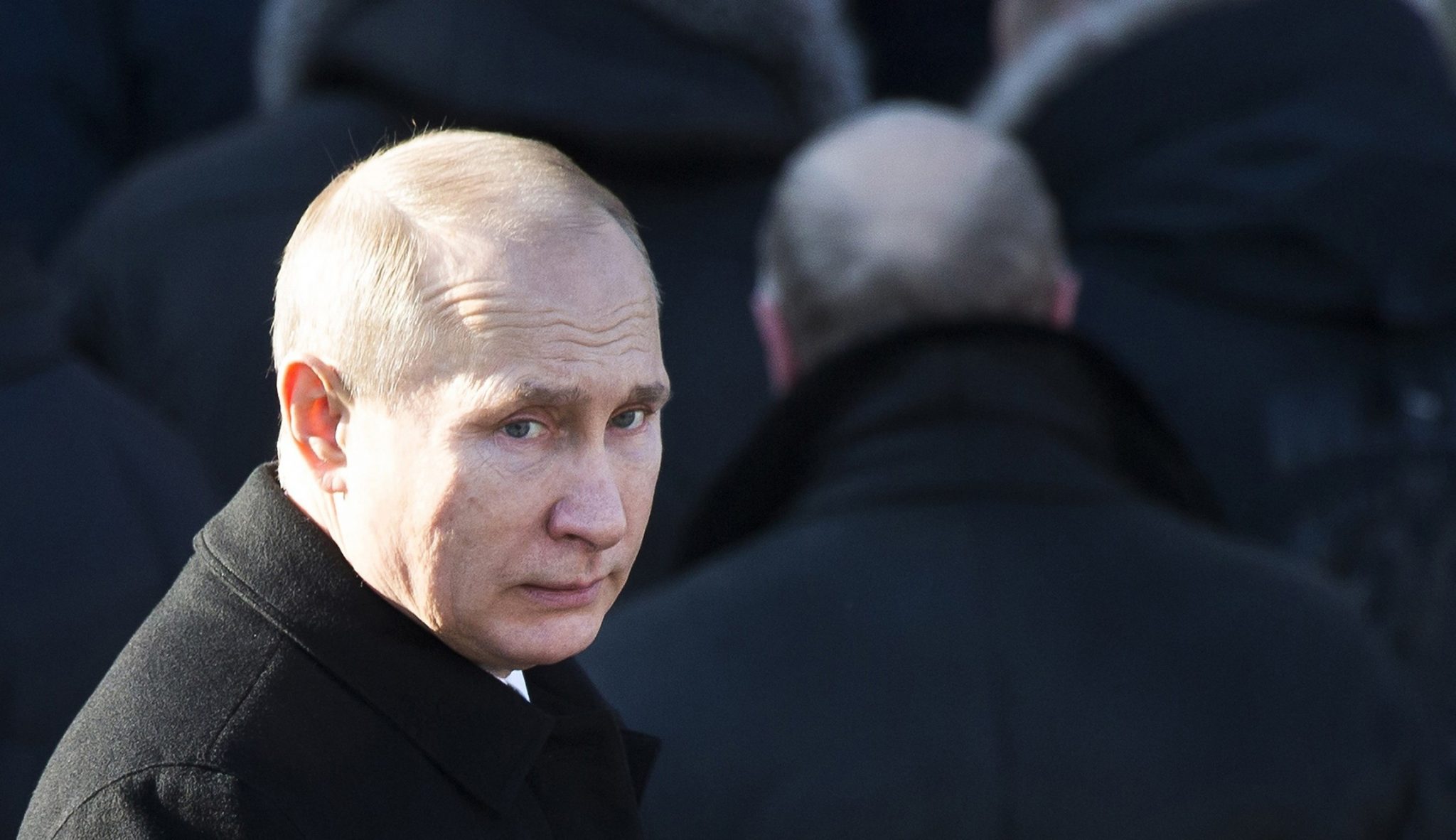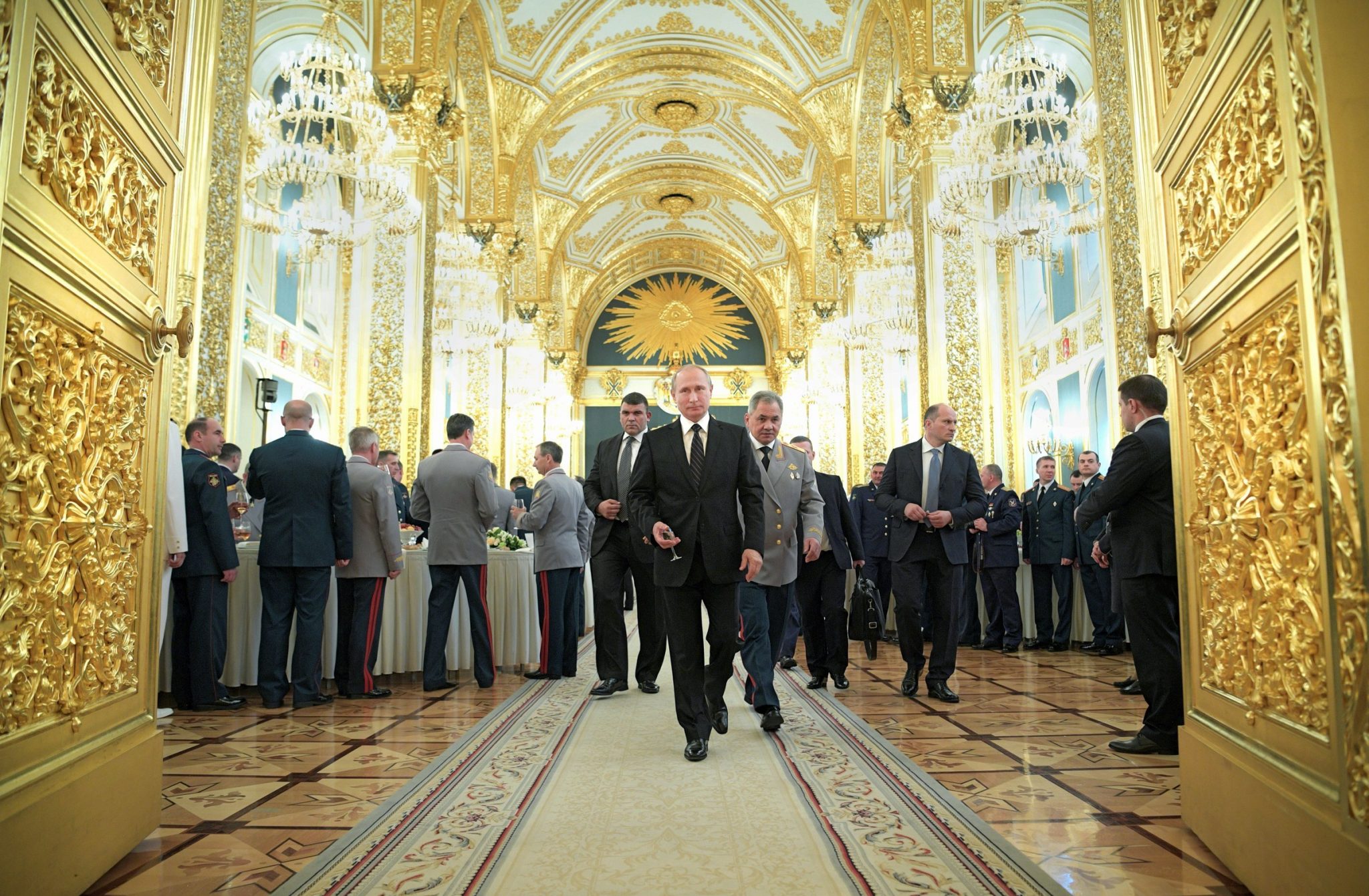
[authorbox authorid=”91″ title=”The Author”]
In recent days, Angela Merkel’s visit in Sochi to meet President Vladimir Putin, followed by Emmanuel Macron’s flight to St. Pietersburg to meet the former KGB lieutenant recently elected President for the 4th time and the visits of Putin himself to Recep Tayyip Erdoğan first and Sebastian Kurz later, showed that the consensus towards the Russian leader is growing fast in Europe and its neighbors. Both outside and inside the European Union, the “Putin club” is experimenting an enlargement.
In Turkey for example, relations between President Erdoğan and President Putin are in their best shape since the 2015 crisis, caused by the shooting down of a Russian warplane by the Turkish army.
The good relations between these regimes were showed in April this year with the visit of the Russian President in Ankara, the first visit abroad after his re-election. In the occasion, the two leaders celebrated the beginning of the works for the nuclear implant of Akkuyu, built by Russian energy company Rosatom and which will provide Turkey of 10% of its necessary energy.
The good relation between these two countries is also demonstrated by their common commitment in the creation of the gas pipeline called Turkstream and by the Russian provision of its S-400 Triumph missile defence system to Turkish army during the last winter, which generated not a few doubts in Turkey’s NATO allies.
Furthermore, during their last meeting Erdogan assured Putin of his intention to increase the trade volume between the two countries to 100 billion US dollars, from the current 22. What Turkey think it could gain from strengthening this alliance would be a sturdier energy security and a higher credibility on the international markets, especially after seeing the local currency drowning. Without ignoring the improvement in relations with a military partner in the local conflict against the Kurds.
On the Western side, President Trump himself in the last G7 meeting held in Canada surprisingly affirmed that Russia should be included again in the G8. Reactions from the former President Obama were quick to show up, with the spokesman saying that “For Putin, this is return on his investment, and it’s safe to say that his investment has paid off beyond even his wildest dreams”. Reactions inside the Group were mainly hostile, with the exception of Italy.
What Trump thinks could be possible to gain from Russia’s return to the G8 is still uncertain: he may look for an ally against China’s products and on tariffs, or he may think that Russia’s admission could be something so unexpected by his counterparts that it could breach the compact anti-US position currently held in the G7.
Likewise, inside the European Union several key figures aim to restore and normalize relations with Russia: prime ministers of Greece and Hungary, respectively Alexis Tsipras and Viktor Orbán affirmed in 2015 and 2017 the necessity for improving relations with Russia, stopping the sanctions against the Country. In recent times, French President Emmanuel Macron, Italian Prime ministers Matteo Renzi and Giuseppe Conte later and Austrian Chancellor Sebastian Kurz joined Putin supporters in the European Union.
In these countries, Russophile parties are increasing in power and, beyond the suspects of Western intelligence agencies regarding Russian funds to them, the same opening to the Kremlin is now wished by unsuspicious figure like the President of European Commission Jean-Claude Juncker, which stated that “this Russia-bashing has to be brought to an end”.
In Juncker words, it is time to restart to bond ties with the country, given its importance and size.
It is a club that is likely to see further enlargement, as inside the European Union the general discontent towards US President Trump policies on several issues like climate, the Iran deal and the recent tariffs in trade is growing fast.
—
The relations with Russia saw a deterioration since the Crimean crisis in 2014 and the subsequent sanctions established by European Union and USA, which saw the reply of the Kremlin in other sanctions on European goods import.
After this event, the support that Putin provided and still is providing to Assad regime in the Syrian civil war did not improve the relations between Russia and European Union, nor did it the Russian influence in many European elections and its involvement in the Brexit referendum or in the last episode known as Skipral case that took place in the United Kingdom sooner this year and let to the ejection of a very relevant number of Russian diplomats from several European Countries.
Nevertheless, European leaders are discovering themselves to be more “pragmatic” than they showed to be in last years and the possible reasons for this new interest in Russian cooperation can be two.
On one side in fact, this glance Europe is throwing at Putin can be seen as a reaction to what President Trump is doing towards EU’s international policies: the withdraw from the Paris agreement on climate change first and on Iran deal later surely has indisposed some of his European allies, to the point that both Merkel and Macron engaged a discussion with Putin trying to save the Iran deal.
But the recently announced tariffs on European steel and aluminium are even harder to digest.
Even Germany, with Angela Merkel being possibly the most rigorous European leader towards Russian sanctions, is now facing Trump’s threat of unilateral tariffs on car, something that would seriously harm German economy. Not to mention the possible scenario of US tariffs involving companies building the second branch of Nordstream, which will provide Russian gas to Germany.
And while Trump proved himself to consider even the historic allies as economic competitors, Putin managed to show enough stability to be considered as a reliable trading partner for European countries. As Putin affirmed in a recent interview, he’s main interest is to “see a united and prosperous European Union because the European Union is our biggest trade and economic partner. The more problems there are within the European Union, the greater the risks and uncertainties for us”.
Many European countries’ economies surely don’t want to suffer from the crossfire of both Russian sanctions and US tariffs and as many manufacturers prefer the Russian market rather than the US, it will be necessary to pay attention to next 31st of July. On that day in fact, the European Union shall decide about the sanctions to Russia and now more than ever since they have been established their perpetuation is uncertain.
The second reason that would explain the increasing number of members in the “Putin club” is that the weakness they probably hope Russian economy will face soon will somehow reduce Putin’s unscrupulous actions in foreign policy. In European leaders’ mind it is remote the possibility that the Kremlin will embark again in actions as the one that already shocked the European watchers: the possibility for a new Crimea, for a new Dombas or a new Syria are very weak.
Russia is in fact facing both economic stagnation in all sectors and enormous problems regarding corruption that need structural reforms to be solved. As a result, the Kremlin already announced that for the first time in years military expenses are not going to grow, but, as Putin became president for the fourth time it is unlikely to see any change in this field in the near future. Reforms, if any, are expected to be symbolic and they probably won’t change the economic course.
Therefore, it is necessary for Putin to end Russia’s isolation as soon as possible in order to both keep the country together and to present it on the international chessboard as a great power. And to reach these goals, Russia will need economic success, which will pass mainly through European financing and the energy market stability.
The “Putin club” is then growing, and the impression is that European populist and far-right parties are trying to solve their home countries electorate problems following their conception of “pragmatism”, enhancing debate and cooperation with an authoritarian and ambiguous ruler that already proved to be a player as astute and enduring as ruthless and unethical.
The risk is to end overlooking on the results of 18 years of Putin actions, which for instance led to corruption, loss of human rights and a regime that poses itself upon any national and international law.




